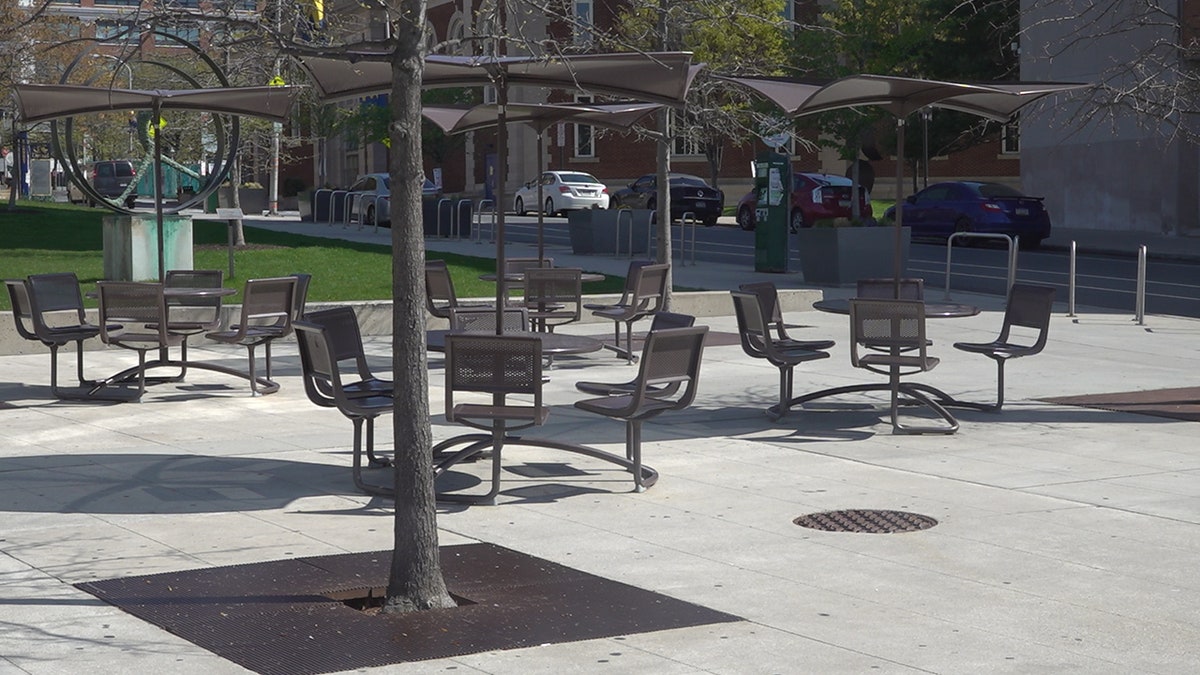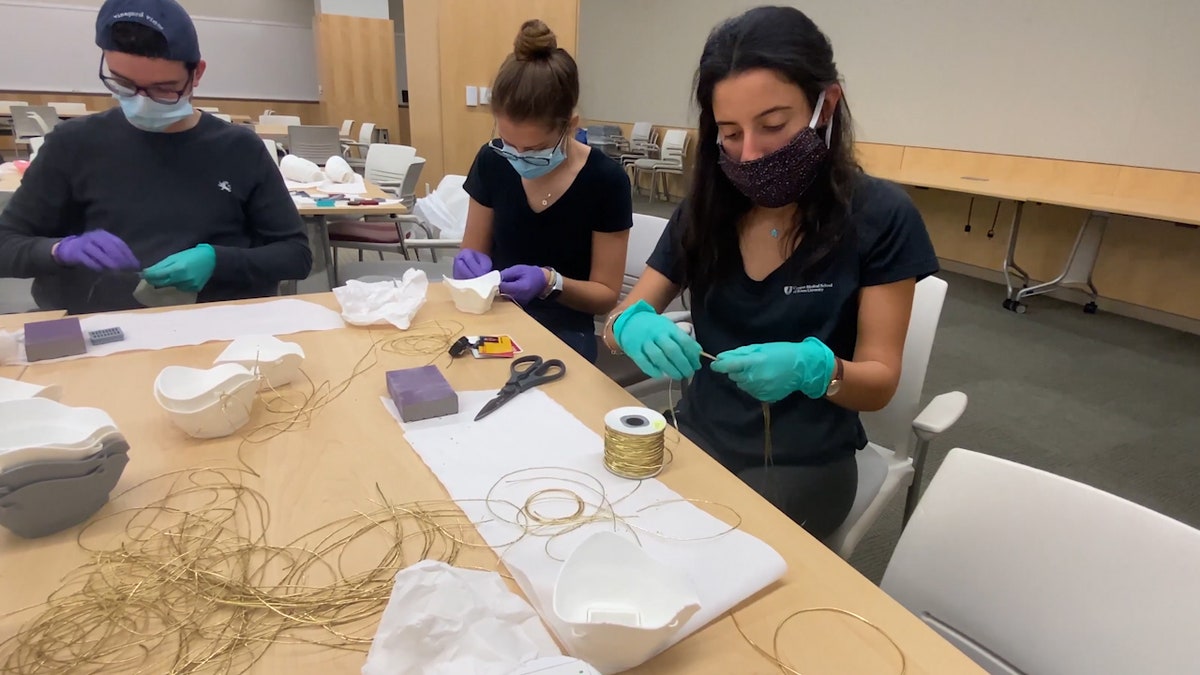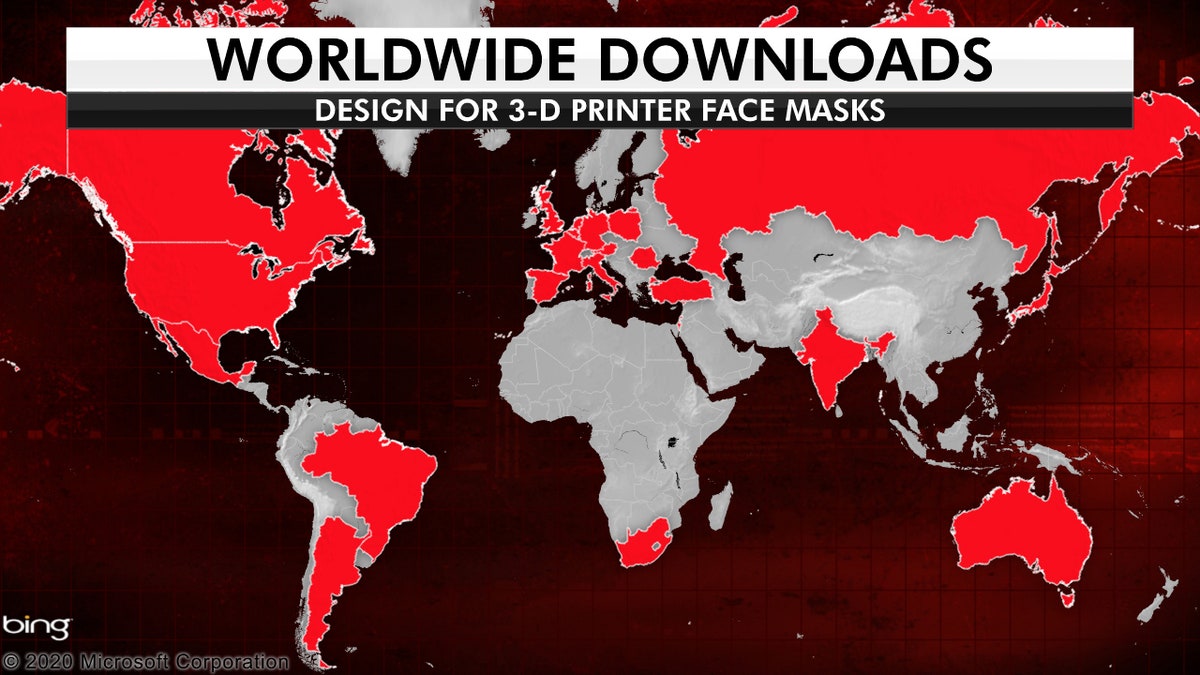Engineers using 3D printers to improve face masks
Many college campuses are closed, but that's not stopping students from getting hands-on experience. Students at Rowan University in New Jersey have been making face masks with 3D printers.
Get all the latest news on coronavirus and more delivered daily to your inbox. Sign up here.
PHILADELPHIA – With many college classes moving online because of the coronavirus, some students have been using their surprise downtime to get some hands-on experience -- and to help first responders.
“Our engineering students are hungry and eager to use their skills to do something to help out with this pandemic,” said Dr. Shreek Mandayam, a professor of electrical and computer engineering at Rowan University.

College campuses across the country are closed for the semester to stop the spread of the coronavirus.
Dozens of students at Rowan University in Glassboro, N.J., have been making face masks with 3D printers from the engineering lab.
Mandayam says some have been taking the printers home with them and coming up with ways to make face masks more user-friendly.
“The filter slot’s larger, so that it’s easier to breathe. You know, when a first responder wears it for a long time, it gets a little stuffy in there,” Mandayam said.
According to Mandayam, it’s been a team effort. The masks are being made by engineering students and then assembled with elastic by medical students at Cooper Medical School, a partner of Rowan.

Dozens of students at Rowan University have been making face masks with 3D printers. (Rowan University)
The masks are reusable and mold to a person’s face when dipped in hot water.
“It allows people to customize their mask. I would call this a personalized bio-defense,” Mandayam said.
Depending on how efficient a person’s 3D printer is, making one mask can take anywhere from an hour and a half to six hours.
So far, the group has been able to make about 300 a week for first responders in the area. And they are not stopping there.
“We are going to make this design available for anyone in the world to download, print, and use,” Mandayam added.
Since sharing the designs online at the beginning of April, they have already had a global impact. University officials said the designs have been downloaded more than 41,000 times in nearly 145 countries.

Rowan University's face mask designs have been downloaded more than 41,000 times in nearly 145 countries.
Meanwhile in Philadelphia, more engineering students are learning how their field relates to the pandemic.
Dr. Charles Haas, an environmental engineering professor at Drexel University, just launched a course called “Coronavirus and Engineering.”
CORONAVIRUS: WHAT YOU NEED TO KNOW
“We talk about topics such as design of masks, design of better building ventilation, design of building decontamination systems, and so forth,” Haas said.
About 40 students have already enrolled in the class. Engineers at Drexel have also used 3D printers to make face shields for nearby hospital workers.
“I have a broad set of engineering majors in the course,” Haas added.
In fact, more and more professors – in a variety of fields – are incorporating the current pandemic into their curriculum.
“I wanted to have the students work on a small simulation that modeled the spread of a virus,” said Dr. Jeffrey Stone, who has taught computer programming at Penn State Lehigh Valley.

Dr. Jeffrey Stone incorporates coronavirus into computer programming course at PSU Lehigh Valley. (Dr. Jeffrey Stone)
According to Stone, data models can be useful in understanding how a virus can spread.
“Ultimately, we need people to be able to create these models for the pandemics of the future. So, we need people with that basic understanding of computer programming in order to make these simulations so that we can understand these phenomena better,” Stone said.
CLICK HERE TO GET THE FOX NEWS APP
As Mandayam noted, part of the students' education has happened beyond the classroom.
“We try to teach our students that you have to do good, and it is just very moving for me to see that,” Mandayam said.

